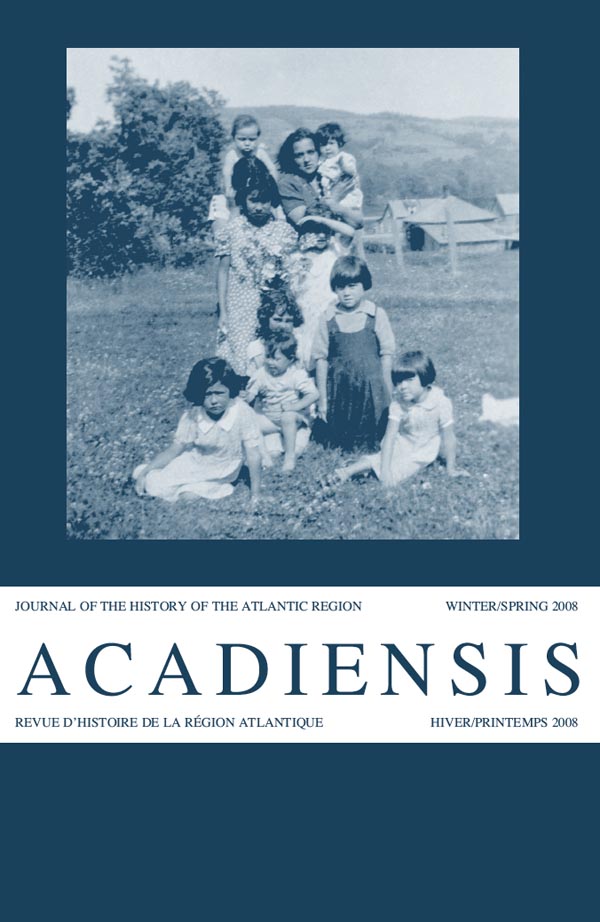Abstract
In the 1940s the federal government undertook schemes to relocate Native people in the Maritimes from smaller reserves to centralized settlements. Beginning in 1945 New Brunswick’s Maliseet were targeted with centralization, as Ottawa planned to relocate the people of the St. Mary’s, Woodstock, and Oromocto reserves to Kingsclear, northwest of Fredericton. New Brunswick centralization, however, failed in large part due to the actions of the Maliseet. By denouncing centralization publicly, by petitioning federal officials, and by reconstituting a Saint John River Valley Maliseet political collective, the Maliseet successfully stymied Ottawa’s New Brunswick centralization plan. Résumé Au cours des années 1940, le gouvernement fédéral entreprit des projets visant à déménager dans des établissements centralisés les membres des Premières nations des Maritimes qui vivaient dans de petites réserves. À compter de 1945, les Malécites du Nouveau-Brunswick furent ciblés par la centralisation, alors qu’Ottawa planifiait de relocaliser les habitants des réserves de St. Mary’s, de Woodstock et d’Oromocto à Kingsclear, au nord-ouest de Fredericton. Toutefois, la centralisation au Nouveau-Brunswick échoua en raison, dans une large mesure, des actions menées par les Malécites. En dénonçant publiquement la centralisation, en remettant des pétitions aux représentants du gouvernement fédéral et en formant un nouveau collectif politique des Malécites de la vallée du fleuve Saint-Jean, les Malécites firent échec au plan de centralisation d’Ottawa au Nouveau-Brunswick.Copyright for articles published in this journal is retained by the author(s), with Acadiensis being granted a non-exclusive licence to each and every right in the work throughout the world. After publication of the work, the author(s) shall have the right to self-archive the work and to reprint the work in whole or in part in books authored by or edited by the author(s) without the payment of any fee. In these other formats, however, the author or authors are required to acknowledge the original publication of the work in the pages of the journal. In the case of any requests to reprint the work, Acadiensis will require a standard permission fee -- to be divided equally between the journal and the author. In the event that such requests are received by the author(s), the author(s) shall direct such requests to the journal.

